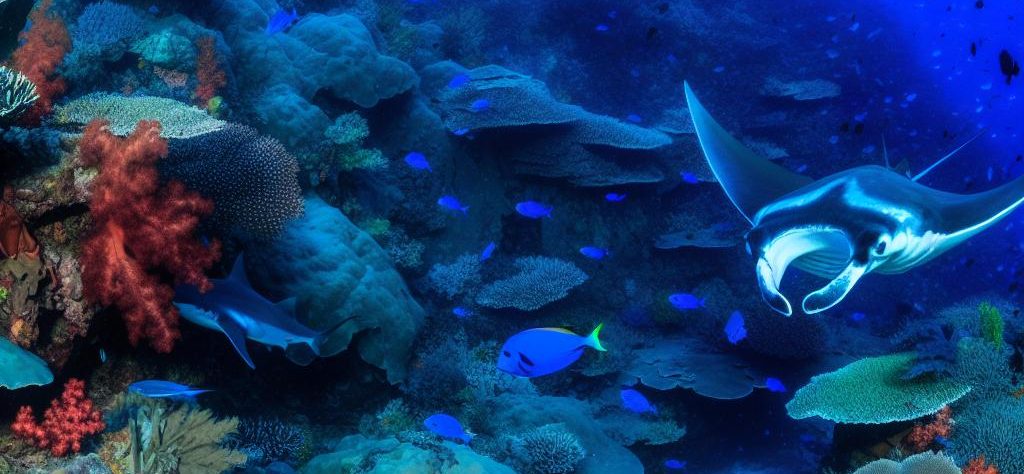Introduction to Tubbataha Reefs Natural Park
Located within the Philippines, Tubbataha Reefs Natural Park emerges as a critically important protected area, famed for its exceptional marine biodiversity. Designated as a UNESCO World Heritage Site in 1993, this park finds itself nestled in the central zone of the Sulu Sea, approximately 150 kilometers to the southeast of Puerto Princesa City in Palawan. The park not only plays a pivotal role in the conservation of marine life but also serves as a vital arena for scientific research and ecotourism.
Geographical Features
The expansive Tubbataha Reefs Natural Park encompasses an area of about 97,030 hectares. It is comprised of two principal atolls—namely the North Atoll and the South Atoll—accompanied by the smaller Jessie Beazley Reef. The structural composition of each atoll is diverse, boasting various underwater geographical formations, which include vertical walls, extensive lagoons, and coral mounds. The clear, pristine waters offer excellent visibility, frequently surpassing 30 meters, making it an ideal and sought-after location for diving enthusiasts.
Marine Biodiversity
The impressive marine biodiversity of Tubbataha stands as one of the primary reasons for its recognition by UNESCO. With a vibrant ecosystem, the park houses more than 600 species of fish, 360 species of coral, 11 species of shark, and 13 species of whales and dolphins. Particularly notable is its status as a critical breeding ground for endangered marine species like the hawksbill and green sea turtles. Conservation endeavors in this region strive to shield these invaluable species and their natural habitats from the deleterious effects of human activities and environmental shifts.
Conservation Efforts
The delicate ecosystem of Tubbataha Reefs necessitates stringent protection measures. The park is managed by the Tubbataha Management Office, which implements rigorous regulations to counteract overfishing, pollution, and the unlawful extraction of marine resources. Routine patrolling is conducted to oversee human activities within the park’s boundaries. Additionally, initiatives such as coral transplantation and research programs are continuously pursued to preserve and enhance the park’s ecological equilibrium.
Ecotourism and Diving
Ecotourism constitutes a significant component of Tubbataha Reefs Natural Park’s sustainable management strategy. To ensure minimal impact on the ecosystem, only a restricted number of visitors are permitted to dive in the park annually, typically from mid-March to mid-June, when the weather conditions are most advantageous. Both divers and researchers have the opportunity to immerse themselves in a rich underwater ecosystem brimming with vibrant corals and a diverse array of marine life.
Aspiring explorers of Tubbataha Reefs will find several authorized liveaboard dive boats operating in the vicinity. These vessels provide guided dive tours, ensuring that all activities strictly adhere to conservation measures. For additional details regarding diving permits and guidelines, individuals are encouraged to consult the [official Tubbataha Reefs website](https://tubbatahareefs.org).
Tubbataha Reefs Natural Park undeniably represents an invaluable segment of the global marine heritage, offering unequalled opportunities for education, recreation, and conservation. By consistently prioritizing sustainable practices, the park exemplifies a successful model for harmonizing environmental preservation with economic advancement in marine protected areas worldwide.
The Cultural Significance and Collaboration with Local Communities
In addition to its ecological importance, Tubbataha Reefs Natural Park holds significant cultural value. The relationship between locals and these waters extends beyond mere economic dependency; it is also deeply rooted in cultural practices and historical ties. Consequently, there is an ongoing collaboration between conservationists and local communities, aiming to intertwine modern conservation techniques with traditional knowledge. This partnership not only fortifies conservation efforts but also ensures the cultural heritage is preserved for future generations.
Scientific Research and Contributions
The Tubbataha Reefs serve as a living laboratory for scientific inquiry. Researchers from around the world are drawn to its complex ecosystem, which provides a multitude of opportunities to study marine biodiversity and habitat dynamics. The data acquired from these studies have contributed significantly to understanding coral reefs on a global scale. The insights gained also aid in formulating effective conservation strategies that can be applied to other protected areas worldwide, enhancing the larger effort to safeguard marine ecosystems globally.
Challenges and Future Directions
Despite its status and protection measures, Tubbataha Reefs faces several challenges. Climate change remains one of the most pressing threats, particularly contributing to coral bleaching and changes in sea temperatures. To mitigate these impacts, adaptive management strategies are continually being devised and implemented. In addition, efforts are being made to enhance further funding and resources to bolster ongoing research and conservation initiatives. There’s also a push towards leveraging technology, like remote sensing and drones, to monitor and protect the park more efficiently.
Educational Initiatives and Awareness
An integral part of sustaining Tubbataha Reefs is raising awareness and educating the public about its significance. Various educational programs and outreach initiatives are in place to inform both visitors and local communities about the importance of preserving this unique natural treasure. By fostering an informed community, there is a greater chance of garnering support for conservation efforts and ensuring the long-term health of the reefs.
Conclusion and Sustainable Future
The concerted efforts in conservation, research, and education underscore the importance of Tubbataha Reefs Natural Park as a precious ecological haven. By maintaining its focus on sustainable practices and collaboration, the park not only contributes to regional ecological health but also serves as an inspiration and model for conservation globally. As we peer into the future, the commitment to preserving this unique underwater landscape remains steadfast, ensuring that Tubbataha Reefs continue to flourish and be celebrated in the generations to come.

